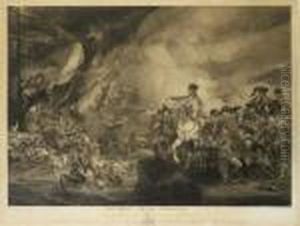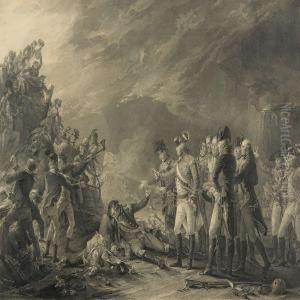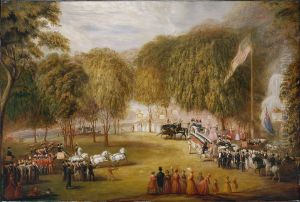William Sharp Paintings
William Sharp, born in 1749, was an English engraver and printmaker known for his high-quality work and expertise in various engraving techniques. He began his artistic endeavors as an apprentice to Barak Longmate, a heraldic engraver. Sharp honed his skills and quickly established himself as a master of the stipple and line engraving methods, which allowed for a great deal of detail and subtlety in his prints.
Throughout his career, Sharp produced a wide range of works, from portraits and decorative pieces to religious and historical scenes. One of his most famous engravings is a representation of the poet John Milton dictating 'Paradise Lost' to his daughters. This level of detail and expression in his engravings garnered Sharp considerable acclaim during his lifetime.
Sharp was not only a talented engraver but also a man of strong religious beliefs. He became associated with the Swedenborgian new church movement, which had a profound impact on his personal and professional life. His religious convictions were often reflected in his choice of subjects and in the spiritual intensity of his work.
William Sharp's legacy as an engraver remains significant, and his works are considered prime examples of the art form from the period. His ability to capture texture, light, and character in metal plates has left a lasting imprint on the history of printmaking. Sharp passed away in 1824, but his engravings continue to be appreciated for their technical brilliance and artistic beauty.


